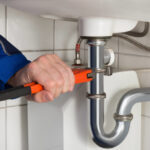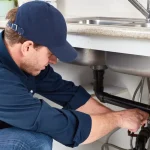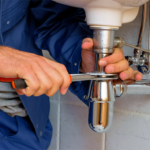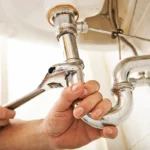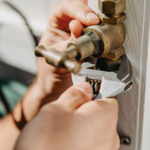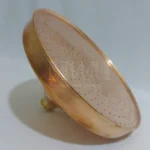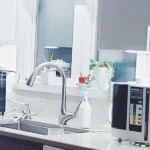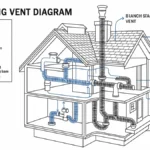If you find yourself with a clogged drain that just won’t unclog, it can be frustrating to deal with. As a homeowner, you may feel tempted to call a plumber right away.
However, there are several techniques you can try yourself to unclog a drain before calling in the professionals. In this blog post, I’ll share some of the most effective methods plumbers use to unclog a drain.
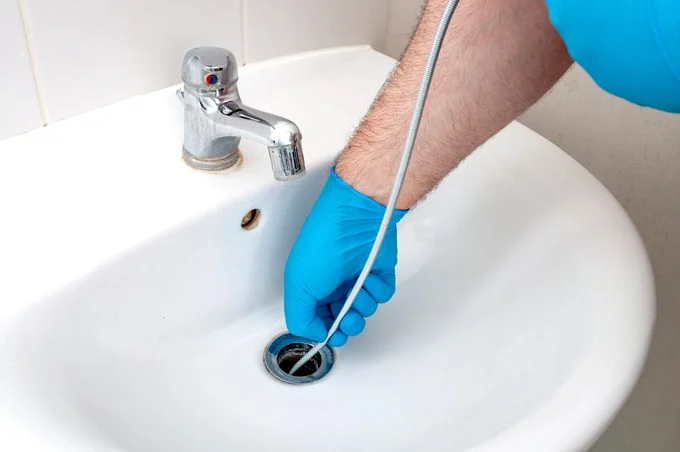
Content
Unclog a Drain – Using a Manual Drain Snake
One of the first tools many plumbers will try when called for a clogged drain is a manual drain snake. Also known as a plumber’s snake or a drain auger, a manual drain snake is a small boring tool that rotates slowly as it’s physically pushed through a stubborn clog.
The twisting motion helps to break up clogs and debris that may be blocking the drain. Manual drain snakes come in different lengths, so choose one long enough to reach the clog deep in your pipes. With patience, you can often unclog a drain by manually rotating the snake yourself.
Trying a Plunger
For lighter clogs in sinks, showers, or toilets, a plunger can be an effective way to unclog a drain without power tools. Plungers create suction to break up clogs and dislodge debris. To use one, wet the plunger cup and place it firmly over the drain opening. Then quickly plunge up and down several times to build pressure and dislodge the clog. Be sure to cover the overflow opening on sinks if present. With some force, a plunger can often unclog a drain in just a few minutes.
Inspecting the Pipes
Before using any tools, plumbers will conduct a pipe inspection to determine the location and nature of the clog. This helps them choose the best tool or technique.
You can do the same by removing the p-trap under your sink or popping open the cleanout plug for your toilet or shower. Shine a flashlight down the pipe to see if you can spot the clog. Its location will guide your tool choice for unclogging the drain.
Trying a Power Auger
For stubborn clogs deeper in the pipes, you may need a power auger. Power augers connect to an electric drill to drive a steel coil cable down the drain. The rotating cable helps to break up clogs and clear blockages. Make sure to select a power auger long enough to reach deep clogs, often 50 feet or more. With care and patience, you can use a power auger yourself to unclog stubborn drains. Just be careful not to over-torque the cable.
Using a Hydro-Jet
The toughest of clogs may require a hydro-jet, a high-pressure water jet tool. However, hydro-jets can be dangerous if not used properly. It’s best to leave this heavy-duty technique to professional plumbers, who have experience using hydro-jets to safely blast away tough clogs and clear years of buildup from drain pipes. The pressurized stream of water effectively breaks down clogs that resist other clearing methods.
When to Call a Plumber
If after trying manual and power snaking you still can’t unclog the drain, it may be time to call a plumber. Signs it’s time for professional help include drain backups that won’t clear, tree root intrusions in pipes, or major structural issues.
Experienced plumbers have additional techniques like camera inspections, specialized power tools, and chemical treatments that may solve the most difficult clogs. Don’t hesitate to call them in if your do-it-yourself attempts fail. A plumber can quickly unclog a drain and get your home’s plumbing flowing smoothly again.
Final Word
In summary, with the right tools and techniques, you can often unclog your own drains like a pro before calling a plumber. Always inspect the clog’s location first before choosing manual or power tools.
With patience and some muscle, you can keep your home’s drains flowing freely with these effective unclogging methods. Just be sure not to attempt risky techniques like using a hydro-jet yourself. With proper care, you can handle many clogs from the comfort of your own home.
FAQs
What types of items typically cause clogged drains?
Common drain clog culprits include hair, food scraps, grease, debris like small toys or jewelry, roots, and mineral or soap buildup. Clogs occur when these items accumulate over time in pipes.
How can I prevent future drain clogs?
To prevent clogs, avoid pouring grease, oils, or food down the drain. Use drain strainers, collect hair from sinks/showers, and chemically treat drains monthly. Promptly address any slow drains before a full blockage occurs. Regular maintenance keeps drains flowing freely long-term.

Christine Kelley is a dedicated home blogger who has been blogging for over six years. She covers everything home related. Christine also loves writing posts about her travels to Europe with her husband and two children.

